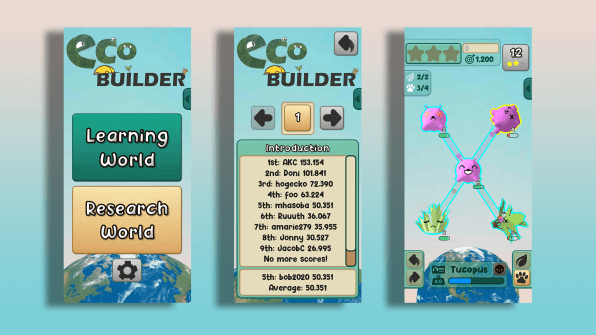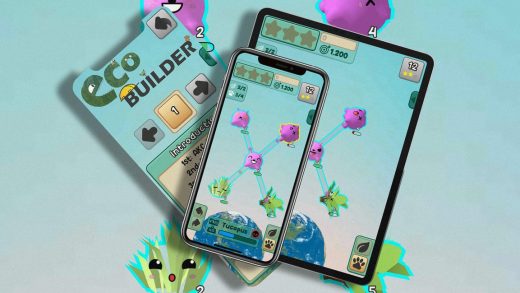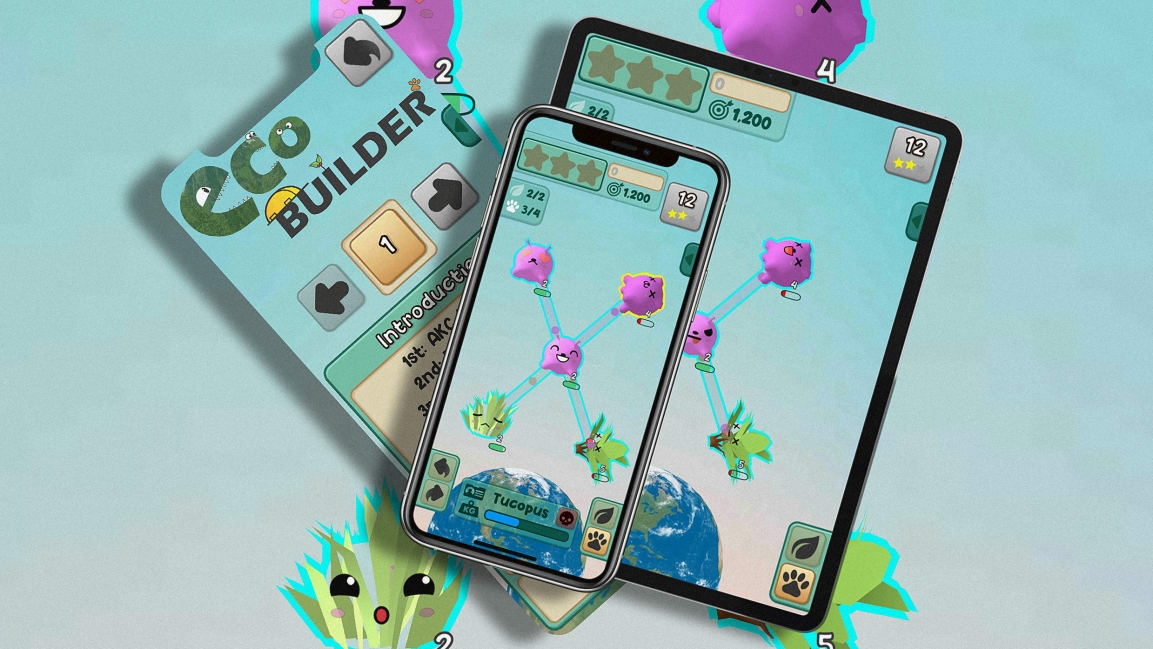This mobile game lets you build ecosystems that will help solve real-world ecological problems
Keeping an ecosystem in balance is tricky, especially as climate change and other human interventions threaten our wildlife, so scientists turn to mathematical models to map out how things such as pollution or population will affect our world, or how we can save certain species through conservation work. Now, anyone can try their hand at keeping an ecosystem in balance through a new smartphone game, while also helping researchers find real-world answers to ecological problems.
Through EcoBuilder, players build their own ecosystems of plants and animals, adding in species of different sizes and deciding who eats whom. Based on those decisions, the species will either survive or go extinct. The game was developed by Jonathan Zheng, a PhD student at Imperial College London’s Department of Electrical and Electronic Engineering, and his co-advisors Dan Goodman, a neuroscientist in the same department, and Samraat Pawar, a biologist within the Department of Life Sciences.

The idea was inspired by a BBC documentary about the wolves in Yellowstone, which were declared extinct there in 1926. Without wolves, the ecosystem drastically changed. The number of elk skyrocketed, and so did the amount of vegetation that the elk ate. Less of that vegetation affected the habitat for smaller animals such as beaver, and in a chain reaction, even the population of fish struggled.
To bring the ecosystem back into balance, ecologists reintroduced wolves into the park, which brought down the elk population, allowing the plants the elk ate to grow bigger, which allowed beavers to build dams again, which brought back fish. The elk population in Yellowstone is actually higher today than it was when there were no wolves, and the predatory threat of wolves keeps the elk moving around the park instead of overgrazing one area, which caused all those cascading effects. “I found it so intriguingly counterintuitive, the idea that in order to save the things the wolves eat, you have to bring the wolves back,” Goodman says. “I loved the idea that you could play around with that sort of thinking, that ecosystems can behave in a really unusual way.”
Though EcoBuilder doesn’t depict real animals—all the plants and animals are made up, like Pokémon—the idea is the same: players add in predators in order to keep every species alive. The species in the game differ only in size, which still affects their interactions. When plants are smaller or lighter, they grow faster, feeding more animals. If you make the plants large like an oak tree, they take too long to grow for the animals to survive off of. When the animals change in size in the game, it affects how they eat. “If you imagine a herd of cows eating a field of grass, they’re going to eat it a lot lower than a swarm of locusts,” Zheng says.

The game uses the same mathematical models that scientists use to model real ecosystems. With every level a player completes, the best ecosystem they made and the actions they took to get there are stored on a server to be shared with researchers. “There’s a chance that . . . the results that come from the strategies that the players use and similar understanding of real ecosystems could be used to inform environmentalist policies,” Zheng says. There are also ecological models that look at how carbon sequestration can affect species diversity, and the designers say a future update of the game will include a climate change aspect to see how these systems change as the environment does.
While crowdsourcing research for experts, the game also helps its players learn about different ecological phenomena, like competitive exclusion or biocontrol. One interesting thing players may realize is how influential small and medium-sized species are, Pawar says. A lot of conservation work tends to be influenced by what people like to study, which means species such as polar bears may be overrepresented in research. “The reality, and that feature the game does capture, is that small to medium-sized species are really the movers and shakers of ecosystems,” he says. Once there are enough players to make statistically significant observations, Zheng says they’ll publish the results from the game, and if you get a high score, your name might even appear in that paper.
Fast Company , Read Full Story
(38)



